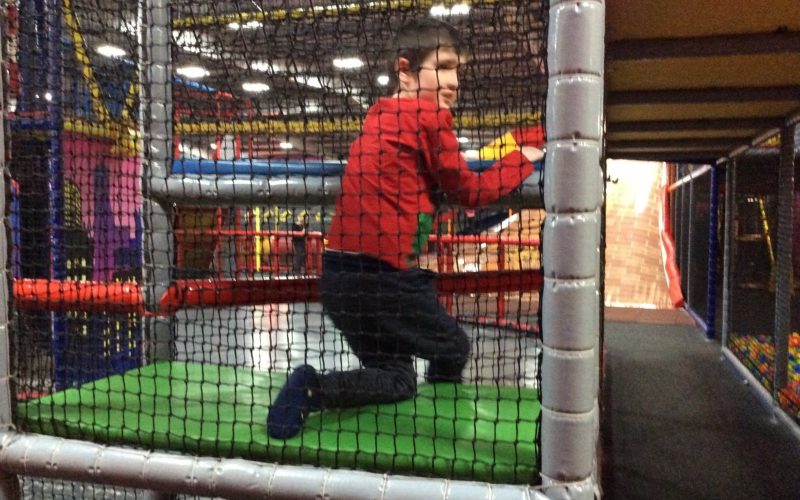Happy New Year!
Now there is a phrase filled with all sorts of questions, opportunities and possibilities!
Will it be happy? How can we tell?
Do we say “Happy New Year!” with confidence that it will contain happiness, or out of hope that it might, or in defiance from a place where we feel happiness is unlikely?
As parents of children with additional needs, we become used to mixed emotions, a roller-coaster ride of great highs and deep lows, but what does a New Year bring for us?
More of the same, or will this year bring change?
If I look back to the beginning of last year, it was a very dark time.
Not just because of the short days (although those don’t help!) but because these seemed little hope that the difficulties we were facing with our son, James, were ever going to improve.
James (now 16, Autistic with Learning Difficulties and Epilepsy) hadn’t been able to leave the house other than a handful of short night-time drives since the previous July.
As we ticked off the sixth month for these difficulties, brought about by a massive collision of the onset of Epilepsy, puberty, and lots of changes at school, we couldn’t see any light at the end of the tunnel we were in, only more darkness.
We mourned, and continued to mourn, for the loss of all that James had been able to do, all the places he had enjoyed going to, all of the experiences that he was missing out on.
We mourned the loss of opportunities to go out together as family, with one of us always having to stay at home with James while another would go out to the shops, to visit friends, to church.
Six-months later and we were still in the same dark place.
The days were long, the sun was shining, but we were still trapped with James inside our home, James’ ‘safe place’.
A year had passed since James had been able to go out to one of his favourite places, the café at the little grass airfield at Compton Abbas in north Dorset.
Facebook ‘helpfully’ sent me a reminder of that difficult anniversary, and as I looked at the photo of a smiling James enjoying his trip out and the lemonade and millionaire’s shortbread he was devouring, it really choked me up.
Would he ever be there again? Would we ever have family trips out there like that again?
Throughout this difficult time, we were kept going by the love, support and prayers of many wonderful people… some that we know very well, some that we know a little, others that through the wonders of social media we don’t really know at all, but who nevertheless were thinking of us, cheering us on, and in some cases praying for us.
Just two months after that heartbreaking Facebook reminder, we were back at Compton Abbas airfield café enjoying millionaire’s shortbread and lemonade again.
I was in tears again, although this time they were tears of joy.
The breakthrough had happened just as quickly as when James’ troubles had started.
A combination of keeping on trying, great support from CAMHS (Children and Adolescent Mental Health Service), James being really brave, and loads of people being positive and praying for us, saw James able to head back out into the world again.
The header photo for this blog is of us all visiting the café just before Christmas, a wonderfully happy and joyful reminder of the difference a year can make.
We’re not totally back to where we were before it all started yet; James is still visiting school a couple of times a week rather than being back full-time, and there are still places that James struggles to visit, including church, but we are so thankful for where we’ve got to, where James has got to.
We’ve all journeyed so far since this time last year.
So, take heart from our story. Whatever you are facing, however dark your days currently are, there is hope for a brighter tomorrow if you can cling on to it.
Surround yourself with people who understand, who ‘get it’. People who will be positive and encouraging, and if they have a faith will pray.
Look for new strategies to try, new ways to make a difference, new ideas. I am often inspired by the words of Winston Churchill, Britain’s wartime leader and a man who knew dark days more than most… among much great wisdom said these words, “Never give in. Never, never, never, never – in nothing, great or small, large or petty – never give in…”
He didn’t, and neither should we.
Never settle for what is left, always strive to regain what was lost, and more!
So, will this be a positive Happy New Year ahead for you and your family?
Never stop trying to make it so; never give in, and maybe, like us you will look back a year from now and be amazed at what a difference a year can make!
Happy New Year!
